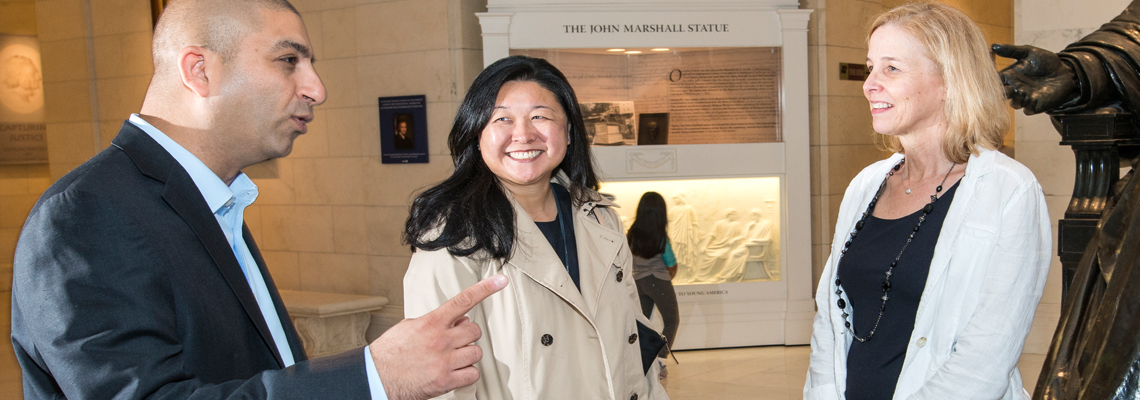
Judicial Clerkship
Why apply for a Judicial Clerkship?
All students should investigate the possibility of a judicial clerkship. The value of a judicial clerkship to your professional development and ultimate career success cannot be overstated. It is an excellent way to bridge the gap between law school and the practice of law. In recent years, some graduates also have chosen to apply for clerkships after practicing law for a year or two.
Clerks have the rare opportunity to view the judicial process from the perspective of a judge at the start of their careers. Through a clerkship, attorneys sharpen their legal skills, broaden their understanding of procedural issues, and develop a sense of what is, and is not, effective advocacy. In addition, judges often develop mentoring relationships with their clerks, which continue on after the clerkships end.
Judicial clerkships exist at both the federal and state levels, and there are numerous clerkship opportunities for students with varying backgrounds and accomplishments. Some students do clerkships immediately after graduation, while some graduates practice for one or two years and then do clerkships.
Current Scalia Law School students should visit the Judicial Clerkship section of the CAS Intranet for more detailed information regarding the judicial application process.